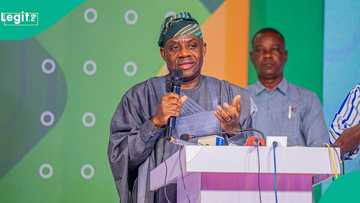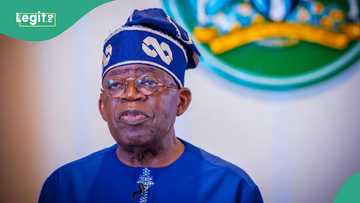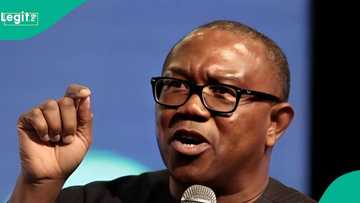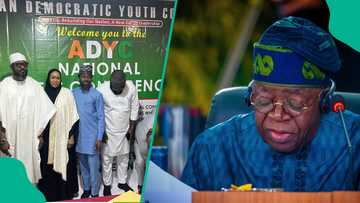2027 Election: Jonathan Speaks on INEC Chairman Appointment Process, Mentions What Must Be Done
- Former President Goodluck Jonathan has called for sweeping electoral reforms, urging the creation of an independent mechanism to appoint Nigeria’s next INEC chairman
- His proposal comes as the tenure of Prof. Mahmood Yakubu nears its end, with the 2027 general elections looming large
- Jonathan also advocated for stronger party discipline and timely resolution of electoral disputes to restore public trust in Nigeria’s democratic institutions
CHECK OUT: How to Start Earning with Copywriting in Just 7 Days – Even if You’re a Complete Beginner
Former President Goodluck Jonathan has called for a fundamental overhaul of the process used to appoint the chairman of Nigeria’s Independent National Electoral Commission (INEC), advocating for an independent screening and nomination mechanism to bolster the commission’s credibility ahead of the 2027 general elections.
Speaking through Ms Ann Iyonu, Executive Director of the Goodluck Jonathan Foundation, Jonathan made the appeal on Wednesday in Abuja during the public presentation of the National Action Plan for Electoral Reforms. The event was organised by the Abuja School of Social and Political Thought.

Source: UGC
His intervention comes at a politically sensitive juncture, with the tenure of the current INEC chairman, Prof. Mahmood Yakubu, set to expire around October. Yakubu, who presided over the controversial 2019 and 2023 elections, has completed two terms.
The impending vacancy has already sparked speculation, especially with President Bola Tinubu widely expected to seek re-election in 2027.
Jonathan highlights need for electoral credibility
Jonathan emphasised that public trust in Nigeria’s electoral system hinges on the impartiality and competence of INEC’s leadership. He criticised the current practice whereby the president nominates the INEC chairman, arguing that it raises persistent concerns about neutrality.
“So many questions have continued to be raised on the propriety of the process of appointing the INEC chairman,” Jonathan stated.
He proposed the creation of an independent body comprising representatives from the judiciary, civil society, academia and professional organisations. This body, he said, would vet and recommend a shortlist of qualified candidates from which the president could appoint the chairman.
“Such reform will reduce perceptions of bias, promote public trust in INEC and enhance the legitimacy of its decisions,” he added.
Historical precedent and constitutional context
Under Nigeria’s 1999 Constitution, the president nominates the INEC chairman after consulting the National Council of State (NCS), with final confirmation by the Senate. Although the NCS’s role is advisory, presidents typically present their preferred candidate to the Council before formal nomination.
Jonathan’s stance is informed by his own experience. In 2010, he nominated Prof. Attahiru Jega to replace Prof. Maurice Iwu, who had overseen the contentious 2007 elections. Jega went on to conduct the 2011 and 2015 elections, the latter marking the first time an incumbent Nigerian president—Jonathan himself—lost and peacefully handed over power.
He argued that this history underscores the significance of the INEC chairmanship and the need for a selection process that commands broad public confidence.
Call for independent registrar of political parties
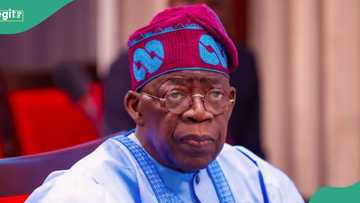
Read also
2027 election: Fresh twist as Tinubu’s former adviser approaches INEC to register new Party to challenge APC
Beyond electoral appointments, Jonathan renewed his call for the establishment of an independent office of the Registrar of Political Parties. He warned of a “growing crisis of political party indiscipline,” citing the increasing trend of elected officials defecting from their original parties without ideological justification.
“To remedy this, we should strongly consider the establishment of an independent office of the registrar of political parties, charged with regulating party operations, promoting internal democracy and enforcing party discipline,” he said.
He further proposed that the registrar should have the authority to declare the seat of any defector vacant, reinforcing the principle that electoral mandates belong to the people, not individual ambition.
Jonathan noted that similar systems have worked effectively in countries such as Kenya and Malawi, where he has served as an election observer since leaving office in 2015.
Electoral dispute resolution must be timely
The former president also called for reforms to ensure that all post-election litigations are resolved before winners are sworn into office. He criticised the current system, where elected officials assume office with unresolved petitions, only to be removed later by court rulings.
“We must adopt a framework that compels the timely resolution of electoral disputes, possibly with specially designated election tribunals and timelines that align with the electoral calendar,” Jonathan said. “Justice delayed in elections is justice denied, not just for the candidates, but for the electorate.”
Call to strengthen democracy
Jonathan concluded his remarks with a passionate appeal for national unity and democratic renewal. He urged both political leaders and citizens to embrace patriotism and courage in confronting Nigeria’s democratic challenges.
“Let us confront our democratic weaknesses with honesty and reform our system with courage,” he said. “Let us continue to work together to build a Nigeria where elections are credible, leaders are accountable, and democracy truly delivers for the people.”
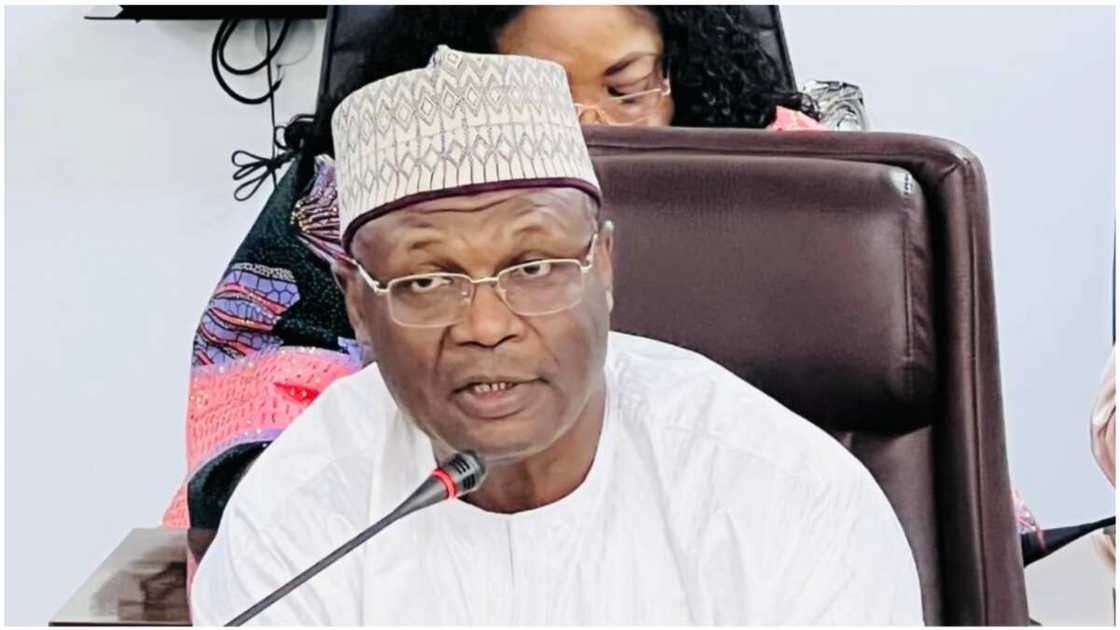
Source: Facebook
Jonathan told to run for 2027 presidential election
Legit.ng earlier reported that a renewed call for former President Goodluck Jonathan to re-enter Nigeria’s political arena has emerged, as former presidential aspirant Mathias Tsado urged his close associates to persuade him to contest the 2027 presidential election.
Speaking during an interview on Channels Television’s Sunrise Daily on Tuesday, Tsado—who previously ran for president under the Liberation Movement in 2019—argued that Jonathan’s leadership was essential to address Nigeria’s deepening economic and security crises.
Source: Legit.ng


